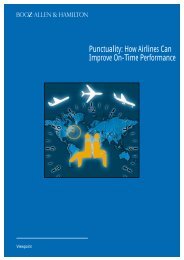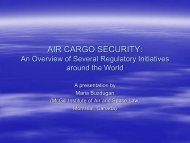The sentence
The sentence
The sentence
You also want an ePaper? Increase the reach of your titles
YUMPU automatically turns print PDFs into web optimized ePapers that Google loves.
3. May is more ‘respectful’ than can and could: May I borrow your umbrella (please)?<br />
4. Might is the most polite but the least common: Might I borrow your umbrella (please)?<br />
5. We can add possibly and use expressions like Do you think and I wonder if to make<br />
requests even more polite:<br />
Can/Could/May/Might I possibly borrow your umbrella?<br />
Do you think I could/Do you think I might (possibly) borrow your umbrella?<br />
I wonder if I could/I wonder if I might (possible) borrow your umbrella?<br />
Give and refusing permission/Expressing prohibition<br />
We personally give or refuse permission in everyday situations in the following ways:<br />
You can (not) watch TV for as long as you like. (Not *could*)<br />
may (not) (Not *might*)<br />
We refer to ‘some other authority’ that gives/refuses permission like this:<br />
You can/cannot or You’re allowed to/not allowed to<br />
You can/cannot or You’re permitted to/not permitted to smoke here.<br />
You mustn’t or You’re forbidden to<br />
Permission/prohibition in tenses other than present and future<br />
May and must are not ‘complete verbs’, so we use be allowed to to make up their ‘missing<br />
parts’: <strong>The</strong> children were allowed to watch TV last night. (Not *could*)<br />
‘Can’ (= ability) and ‘can/could’ (= have permission, be free to)<br />
We use can/could in the sense of ‘am/is/are free to ‘to refer to the future:<br />
Mr Jones can/could see you tomorrow, if you ar free. Or Mr Jones is able to see you …<br />
But we must use will be able to (not *can/could*) to describe future ability:<br />
Baby will be able to stand up in two weeds’ time. (Not *can/could*)<br />
D. Uses of modals (etc.) to express certainly and possibility<br />
Certainly and possibility<br />
1. if we are certain of our facts, we use be or any full verb:<br />
Jane is at home. Jane works at home. (certain facts)<br />
2. If we are referring to possibility, we use may, might or could + be/have been:<br />
Jane may/might/could be at home now.<br />
She may/might/could have been at home yesterday.<br />
Or we use may, might, could + full verb:<br />
Jane may/might/could work (or … may/might/could be working) at home.<br />
She may/might/could have worked (or … have been working) at home yesterday.<br />
Certain and uncertain answers to questions<br />
1. A ‘certain’ question may produce an ‘uncertain’ answer:<br />
Does he like fish? – He might (do). He may (do). He could (do). He may not.<br />
70




